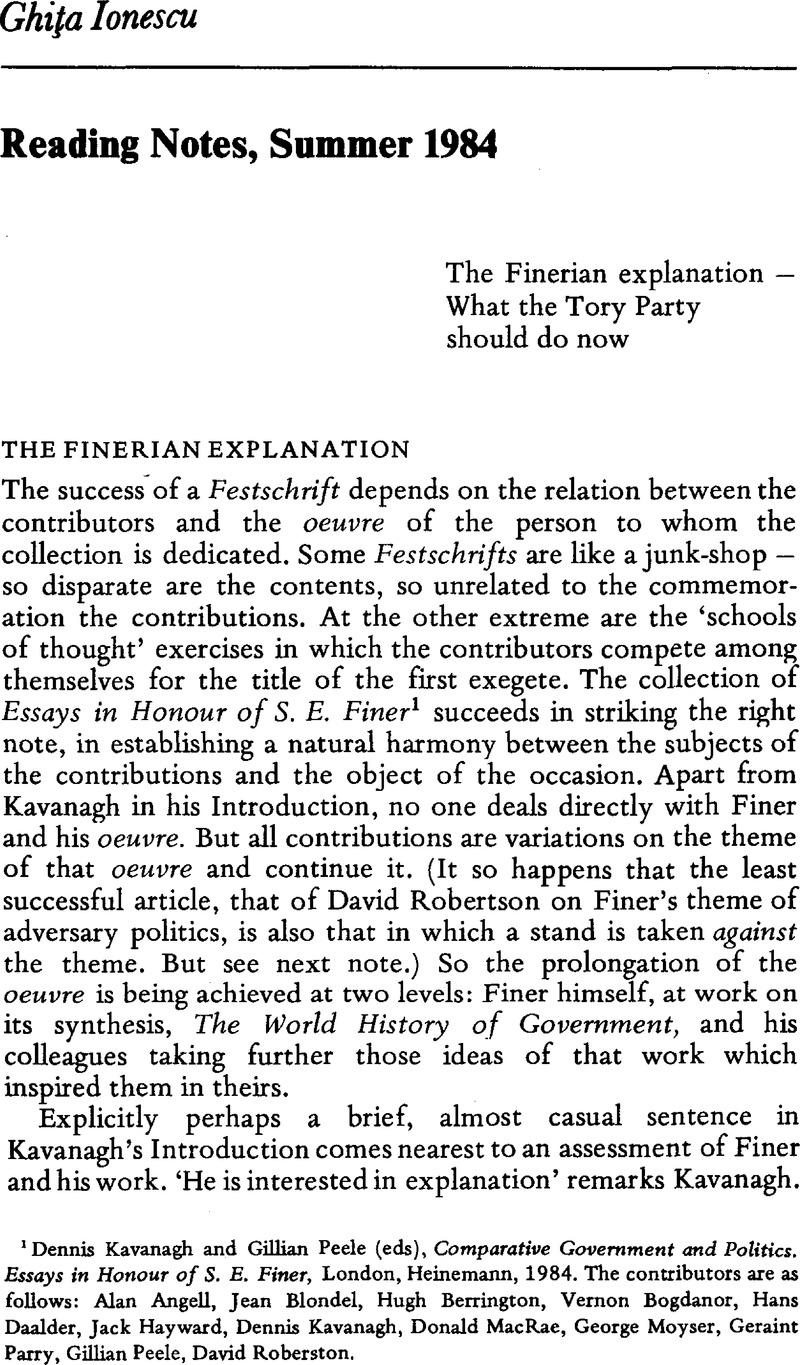No CrossRef data available.
Published online by Cambridge University Press: 28 March 2014

1 Kavanagh, Dennis and Peele, Gillian (eds), Comparative Government and Politics. Essays in Honour of S. E. Finer, London, Heinemann, 1984.Google Scholar The contributors are as follows: Alan Angell, Jean Blondel, Hugh Berrington, Vernon Bogdanor, Hans Daalder, Jack Hayward, Dennis Kavanagh, Donald MacRae, George Moyser, Geraint Parry, Gillian Peele, David Roberston.
2 Offe, Clauss, Contradictions of the Welfare State, London, 1984, p. 157.Google Scholar
3 Mr. David Robertson, in the Feschrift mentioned in the preceding note, seems to believe that such a distribution is fair and logical insofar as ‘opinion distribution in Britain… in fact shows a perfectly predictable class‐based bi‐polarity’. But Finer’s point is that a two‐party Parliament and electoral system provides one of the most powerful instruments for the creation of class‐based bi‐polarity. The system itself, by preventing the centre from manifesting itself further, opens up the vacuum in the middle of the diagram.
4 See John Callaghan: British Trotskyism, Theory and Practice, Oxford, Blackwell.